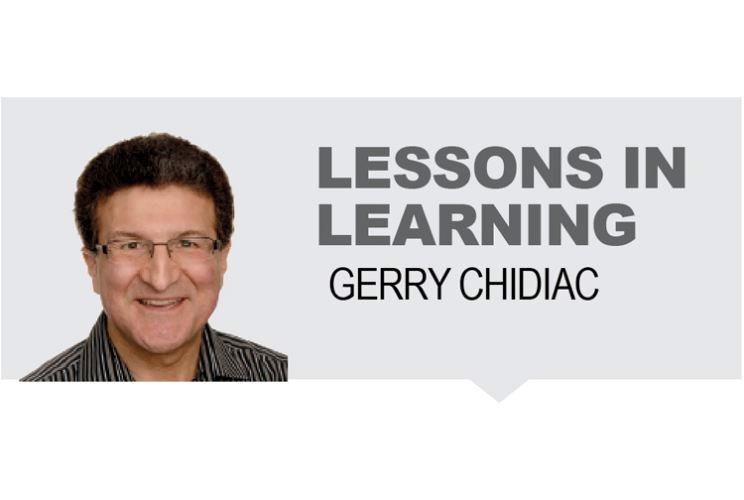The great German writer Johann Wolfgang von Goethe said, "Durchs Suchen und Stolpern lernen wir," or "By seeking and blundering we learn."
How true this is on so many levels. If we take the time to understand our mistakes, life is rich on so many levels.
As individuals, none of us is immune to error. When we examine why things did not work out as we'd hoped, can find new and more effective ways to move forward. A child will never learn to walk unless she is willing to fall, get back up and try again. We become aware of how to do things correctly by paying attention to our errors. We need not dwell on them; we need simply learn and move forward.
The same concept applies to our social interactions. We learn that some people are trustworthy and some are not. Some are good friends, good leaders, good colleagues, and others need to be looked on with compassion, yet kept at arm's length.The key is to develop a sense of awareness and learn the valuable lessons life offers to us, mindful of the ever-expanding base of knowledge regarding human behavior offered to us by the science of psychology.
On a societal level, it is vital that we understand the lessons of history. In essence, we live in a world of failed and successful social experiments. Though it can be difficult to determine cause and effect with certainty due to inaccuracies in the recording of history, repeating patterns tend to reveal deeper truths.
It is also important to remove judgment from our analysis of mistakes. Just because we trusted an untrustworthy person does not make us a fool. Just because a certain political philosophy led to a period of war and destruction does not mean that the purveyors of this view were all evil, it just means the concept must be seen for what it is, a very bad idea.
In my own studies, I find it very easy to label figures like Hitler, Goebbels, Mao, Stalin and King Leopold II as the epitome of evil. Deeper analysis, however, reveals that they were frail, frightened and unbelievably insecure human beings who felt constantly threatened.
What then is the deeper lesson? Perhaps it is to learn to recognize destructive styles of leadership and respond to them effectively. At the end of the Second World War, we promised "never again." Making that reality involves more than squashing despots when they rise to power, it means promoting systems of fair governance and choosing principled leaders.
The study of history also reveals that there are always people who live with a sense of integrity which allows them to see the faults of their leaders and requires them to take a stand according to their own values, regardless of the cost.
Where there are tyrants, there are always rescuers. We see the brave souls who sacrificed their lives to hide Jews from the Nazis. We study the accounts those who put their credibility at risk to unveil the horrendous crimes of the powerful King of Belgium was committing in Africa. We read the disturbing words of the Russian novelist Solzhenitsyn, who revealed to the world the truth of Soviet oppression.
It can be argued that the greatest mistake we made in the past was in trusting the wrong people to lead us and ignoring those who lived by the principles of love, respect, compassion, and moral courage. Looking back with the eyes of wisdom, we can see who was right.
Today, we are writing the history that our descendants will study. Perhaps the greatest gift we can offer them is to truly learn from the blunders of our ancestors.
-- Gerry Chidiac is a champion for social enlightenment, inspiring others to find their greatness in making the world a better place. For more of his writings, go to www.gerrychidiac.com.



